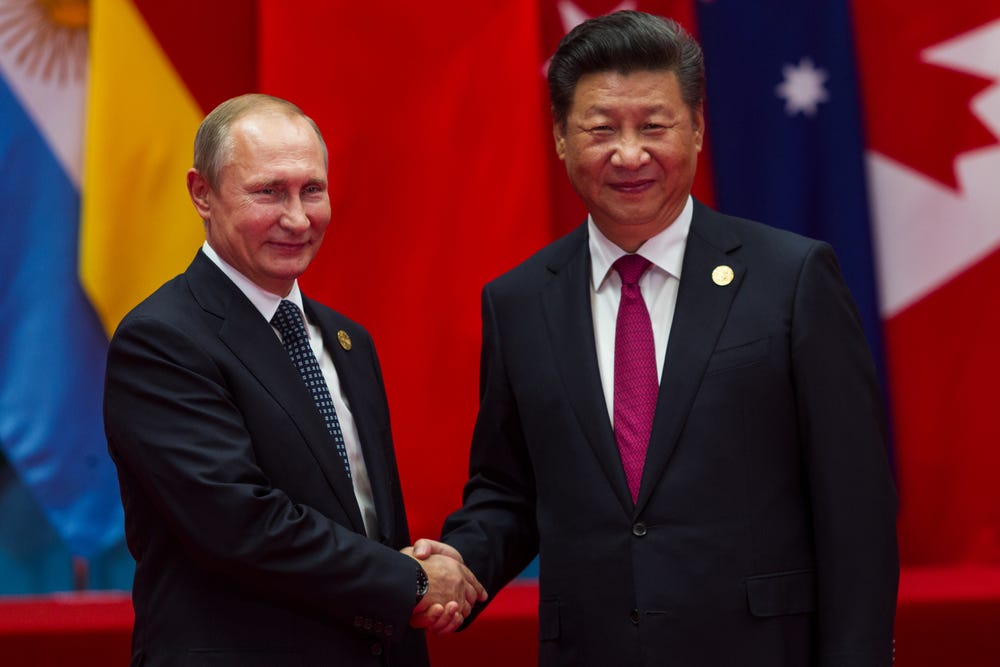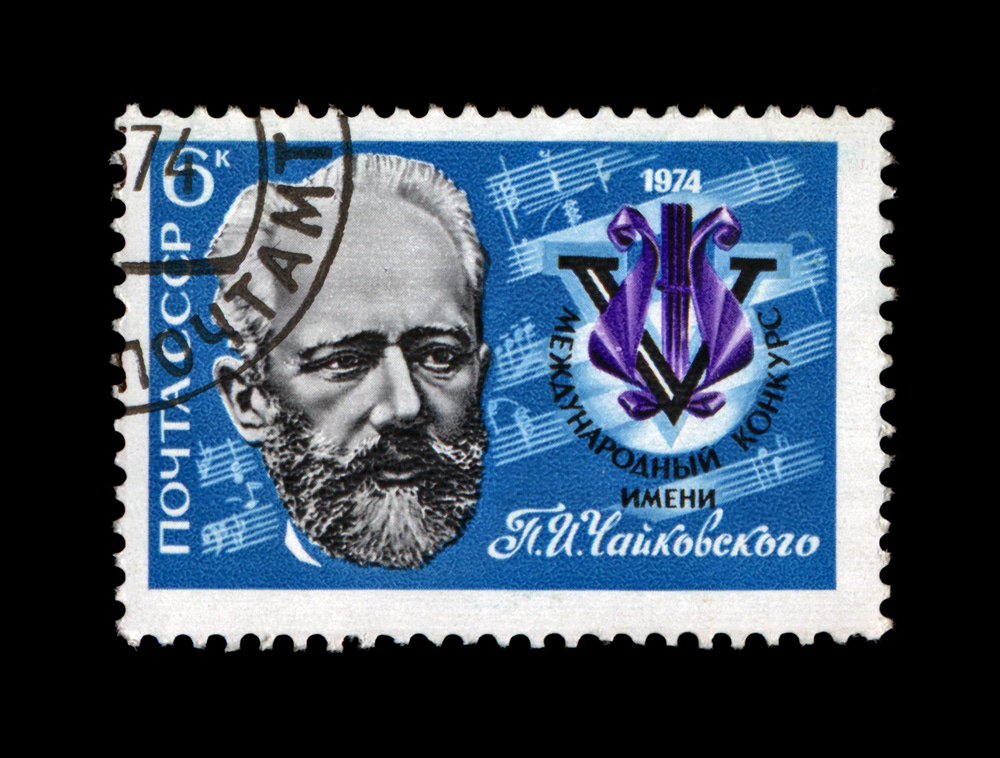E-Pluribus | March 10, 2022
Escaping tribalism, learning to take authoritarians seriously, and the importance of separating Vladimir Putin's invasion of Ukraine from all things 'Russian'.
A round up of the latest and best writing and musings on the rise of illiberalism in the public discourse:
William Deresiewicz: Escaping American tribalism
Author William Deresiewicz is a self-described progressive and over the years has written for Slate, New York Magazine, the Atlantic, and the New York Times, among others. A lifelong National Public Radio (NPR) listener, Deresiewicz recently found that NPR and other mainstream outlets no longer even tried to be evenhanded, but wore their ideological viewpoints on their sleeves. This epiphany prompted Deresiewicz to diversify his media consumption habits and, in the process, learned that while tribalism can be comforting and affirming, opening one’s mind and ears to a wider array of views and voices is a healthier and more satisfying way to live.
More broadly, I have learned of the emergence of an alternative ecosystem of independent-minded journalists, experts, and thinkers, many of them exiles, voluntary or otherwise, from the established media. They are free of institutional allegiances. They are unintimidated by the Twitter mob. They are committed to free inquiry and free speech. They are unafraid of debate. For the first time in a good long while, I feel myself reflected in the public sphere. I have a home, once again, in America.
We talk incessantly these days about political polarisation. Americans are hunkered down in our camps, we say, in our tribes. We are blue versus red, urban versus rural, secular versus religious. But wherever there are tribes, there are individuals who leave their tribe: renegades, heretics, converts; expatriates, emigrants, exiles. The late, great anthropologist David Graeber remarked that despite what we tend to believe about pre-modern social formations — that they were self-enclosed and inescapable — some five percent of their inhabitants, on average, left their group.
So it clearly is today, whatever the exact percentage. We rarely talk about this, but we should. It would help us perceive that our tribes, mentally and socially, are not so inescapable, so self-enclosed. That we have options. That there aren’t just two camps. That you do not have to join a camp at all. Because most of the people who leave one, I would venture to say, do not join the other. They become, as we say, politically homeless: anti-Trump conservatives who do not recognise what’s happened to their movement or their party; progressives, like me, who are disgusted at the spectacle of what progressivism has become.
But maybe the most important reason to talk about the existence of today’s political renegades and ideological heretics is to enable each of them, each of us, to feel less lonely. To live within a tribe is to enjoy the reassurance that you’re one of many. To leave one — to break one’s attachments, to call down the condemnation of one’s peers and friends — is necessarily to feel that you’re alone. But you are not alone.
Read the whole thing.
Wall Street Journal Editorial Board: Taking Dictators Literally and Seriously
Although internal enemies of freedom are often the focus in the West these days, the editorial board of the Wall Street Journal warn that we shouldn’t overlook external threats from more traditional sources. Vladimir Putin’s attempt to finish the job in Ukraine he started in 2014 (with even earlier red flags with his move into Georgia in 2008) should make us vigilant to China’s and even Iran’s belligerence lest we wake up too late to the new realities that authoritarianism is on the move.
In an essay last summer, Mr. Putin asserted that Ukraine sits on historically Russian territory. He often describes Ukrainians and Russians as “a single people.” Why did so many in the West refuse to take any of this seriously? Mr. Putin must be wondering why the rest of the world is outraged that he is doing what he made little or no effort to conceal.
This experience should ring alarms concerning the rest of the world’s autocrats. What have they been telling us that we’ve convinced ourselves they couldn’t possibly mean?
In Beijing Xi Jinping speaks of Taiwan in much the same way Mr. Putin does Ukraine. In 2013 the Chinese leader said a resolution to the Taiwan matter couldn’t be delayed indefinitely. In 2015 he stressed ethnic solidarity between the mainland and Taiwan in a meeting with Taiwan’s then-President Ma Ying-jeou.
In 2019 Mr. Xi said “unification between the two sides of the [Taiwan] Strait is the great trend of history.” He doesn’t necessarily mean peacefully. In the same speech he said, “we make no promise to abandon the use of force.” He has linked unification with Taiwan to his broader program of national unity and rejuvenation.
Beijing’s strong-arm repression of Hong Kong demonstrates the Xi regime is ready to trample treaties and violate its economic self-interest in pursuit of a nationalist agenda that fulfills Mr. Xi’s ambition. China’s concentration camps in Xinjiang reveal a regime immune to global embarrassment. How convincing is the argument that Mr. Xi would never be so foolish as to invade Taiwan?
Read it all.
Billy Binion: Tchaikovsky Is Canceled
Just as COVID-19’s origin in China resulted in an unjust backlash against all things perceived as “Chinese,” Vladimir Putin’s assault on Ukraine is provoking some knee jerk, guilt-by-association reactions to things of Russian derivation. Billy Binion of Reason cites the latest of these, the Cardiff Philharmonic Orchestra's removal of Tchaikovsky music from an upcoming concert. While there may be some level of legitimacy to sanctions against individuals with direct ties to the dictator, the cancellation of a long-dead composer’s music makes no more sense than refusing Russian dressing on a salad.
The latest utterly pointless sanction is the Cardiff Philharmonic Orchestra's announcement that it would remove music by Pyotr Ilyich Tchaikovsky, the Russian composer, from its all-Tchaikovsky concert, calling it "inappropriate at this time." In the last week, conductor Valery Gergiev and superstar soprano Anna Netrebko have also lost engagements and artistic affiliations due to their cozy ties to the Russian president.
Nationality and prodigious talent aside, Tchaikovsky shares little else with Gergiev and Netrebko. The latter two are alive and beneficiaries of an autocrat's favoritism; Tchaikovsky died over a century ago.
The composer is an inappropriate scapegoat for another reason: He was one of the first and only Russian composers to eschew Russian nationalism and endear his music to the West, becoming what many historians would consider one of the few bridges between Russian and European artistry.
He also loved Ukraine.
[ . . . ]
Those who agree with the Cardiff Philharmonic's decision to deprogram Tchaikovsky may note that one of the selections on the program was his 1812 Overture, a 15-minute piece celebrating the defeat of Napolean Bonaparte's attempted Russian invasion. The piece is inappropriate given the circumstances, the thinking goes. Such comparisons fall a bit flat when looking at the historical context: The piece does not commemorate Russia as the aggressor but rather as a country successfully fending off a foreign invader; as such, it has been embraced by the West and is familiar to many American audiences during 4th of July celebrations. There are lessons to be learned there.
Even still, the objection hardly necessitates scrubbing Tchaikovsky in his entirety solely because of where he was born. That's especially true in light of what was supposed to be the program's main course: his Symphony No. 2, which, in a sort of cosmic irony, is built around…three Ukrainian folk songs.
Read it all here.
Around Twitter
Jonathan Kay finds Canada’s justification for invoking the nation’s Emergency Act to be a wildly inappropriate response to legitimate forms of protest:
The Emma Camp New York Times essay earlier this week (item #1) has helped produce some rather novel interpretations of “right wing”:
Also along those lines, Nicholas A. Christakis introduces a thread (excerpted below) from a Foundation for Individual Rights in Education (FIRE) staffer (where Emma Camp interned) who is anything but “right wing”:
And finally, also via FIRE, presented without comment:








